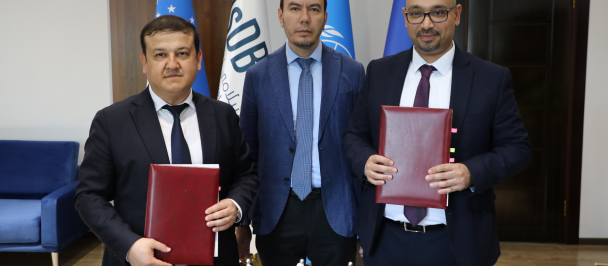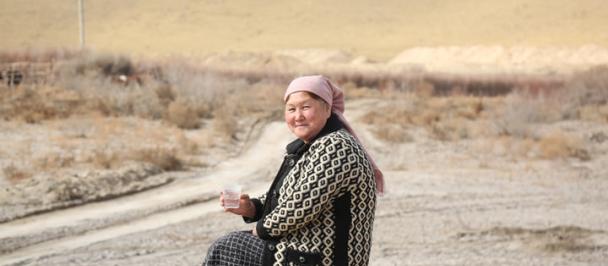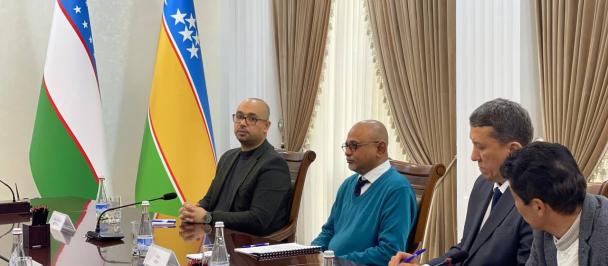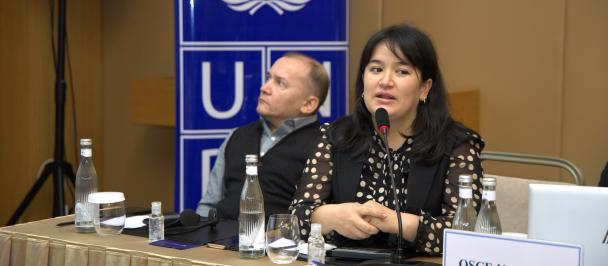Remote mountain villages of Shahrisabz region are supplied with water
May 5, 2022
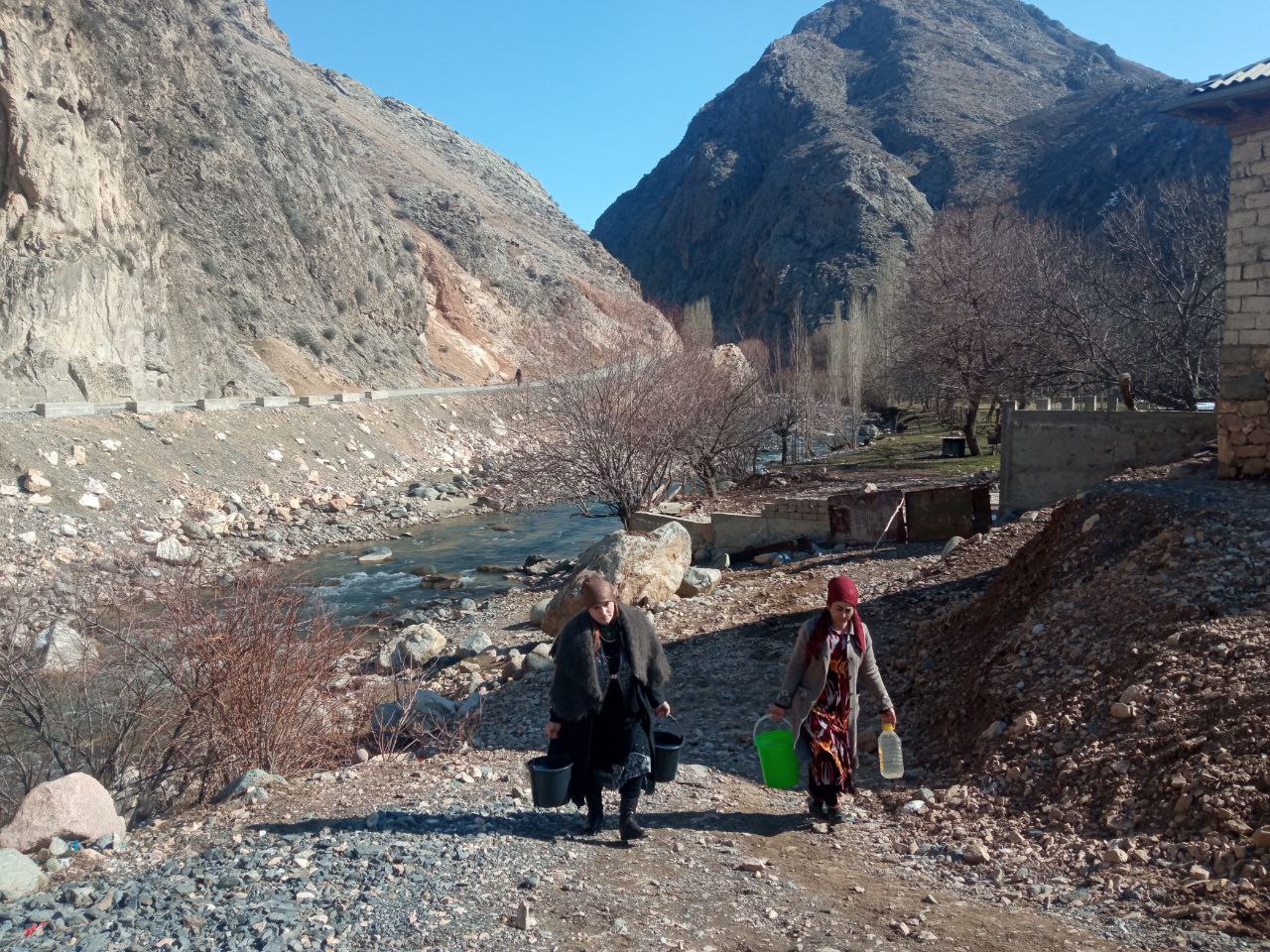
Many people in cities take water for granted – they turn on the tap, and it flows out. But not the women of Chukur, who – together with their daughters, had to, until recently, carry buckets of water along treacherous mountain passes day after day just to meet the needs of their families. With a small grant from the office of the Global Environment Facility at the United Nations Development Programme, the village of 1,477 people was able to install a 6.5 km pipeline that now brings water to 285 households.
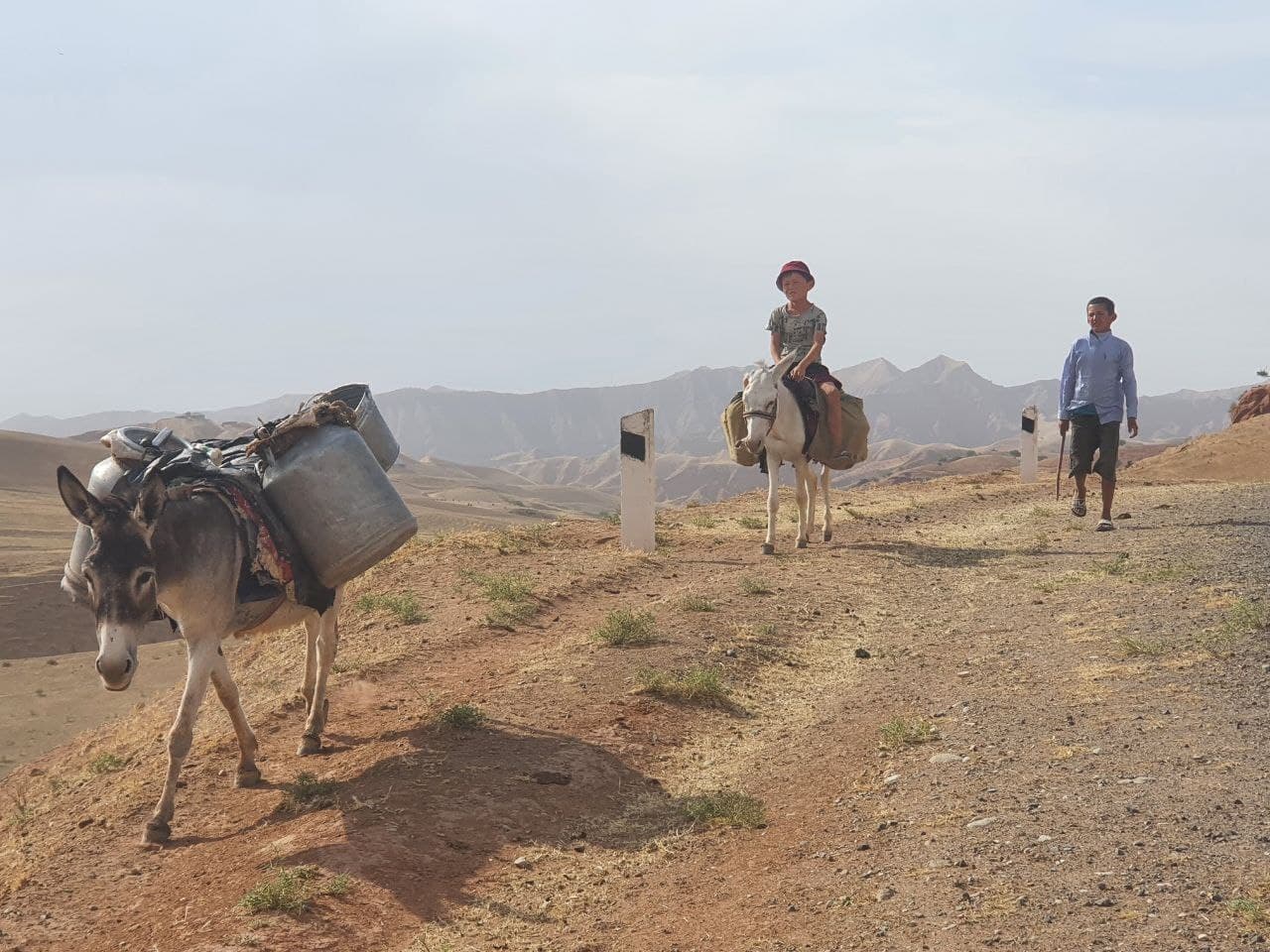
Norbovo Shaymanov, as the village leader, applied for the funding and led the project. He said it was extremely difficult but that the efforts will pay off in the long term. “The piping work was quite tough,” he said, “as a chosen place for water intake is located at the mark of 1650 metres above sea level, and the final point of pipeline supply in the village is at the mark of 1595 metres above sea level. As the pipe will be used throughout the year, it is important to protect it from freezing. Therefore, a half-meter tunnel has been dug in severe mountain conditions.”
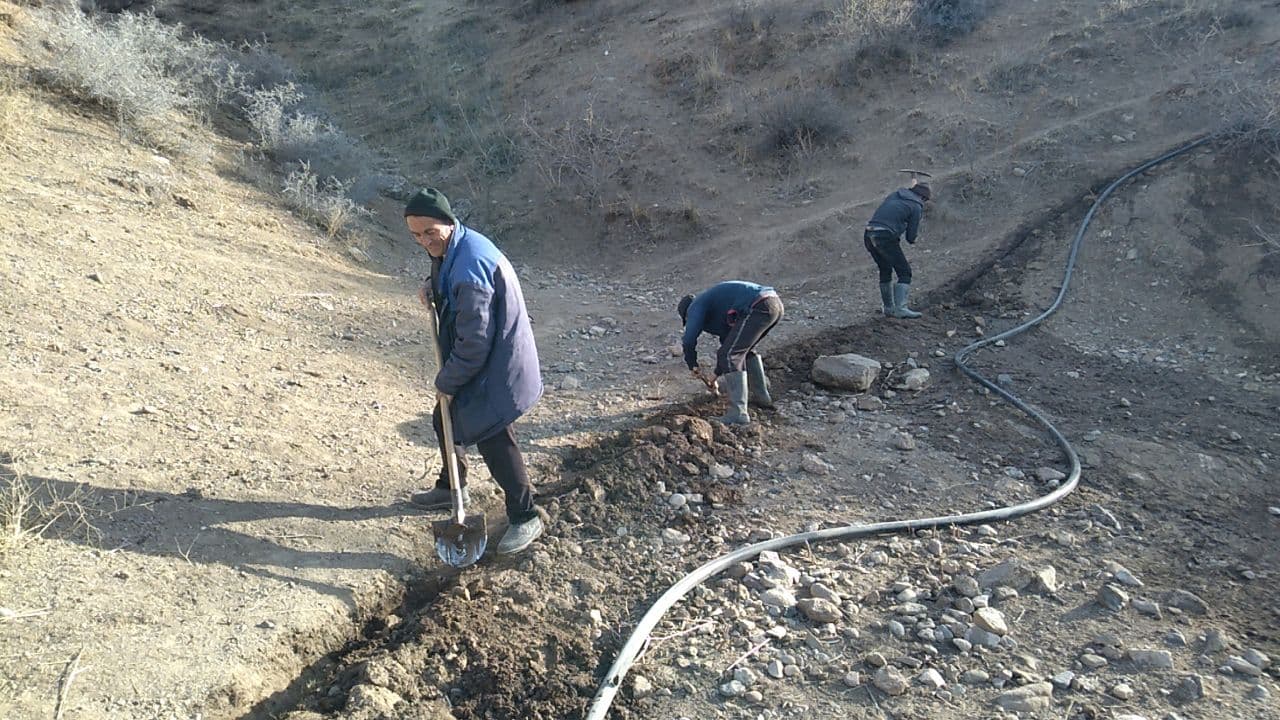
The village is in Kashkadariya province, bordering with Gissar State Nature Reserve. The number of households there been increasing for the past several years as new houses are built for young families. As the land is fertile in this region, the locals have been actively engaged in fruit and vegetable growing by using river water for irrigation. This village is partially supplied with water for irrigation of crop areas and with drinking water, but not for citizens located in higher mountain parts, which makes up 70 households with 320 people. These residents have to go down to the river situated 100 metres below the village and collect water manually, which causes complications, especially in winter and during the precipitation period, as it is difficult to travel over run-down roads.
This job mostly falls on the shoulders of the women of the village. This is due to a common belief of the local citizens that carrying water is primarily women’s duty, since they are the ones involved in irrigation, cattle breeding, agriculture and household activities, raising children and looking after family members. So, in addition to household duties, women and girls have to carry heavy buckets of water on their shoulders along mountain pathways. Establishing water supply system highly beneficial to the whole village and increase their wellbeing.

According to a resident, Fayziddinova Sharofat Savriddinovna, who has lived all her life in the village of Hisor and has been teaching literature at a local school in recent years: "We experienced a lot of difficulties with the collection of water from the spring earlier. In both winter and summer, we used to get to the spring on donkeys or walk a few kilometers. The buckets are usually very heavy and it was not easy to climb up the hill with them. We also had to heat the water in the pots on the fire and wash clothes on the spot. Soap water got into the spring, which undoubtedly harmed both us, the residents and the local nature. After the installation of the pipes by the UNDP project, our life has been made easier, we now have new opportunities that we previously never even thought of, while the living conditions of the population have improved by 100%"
All the work was conducted by the local residents through ‘hashar’. Their resilience to hard work can be seen by working as a team. While having access to water is taken for granted by most of us, it is a true holiday for Hisor village community to be able to meet their daily water needs and improve the quality of their life. The solution to their critical household problems, including the establishment of water supply, has resulted in significant benefits for the whole village and its women.

 Locations
Locations